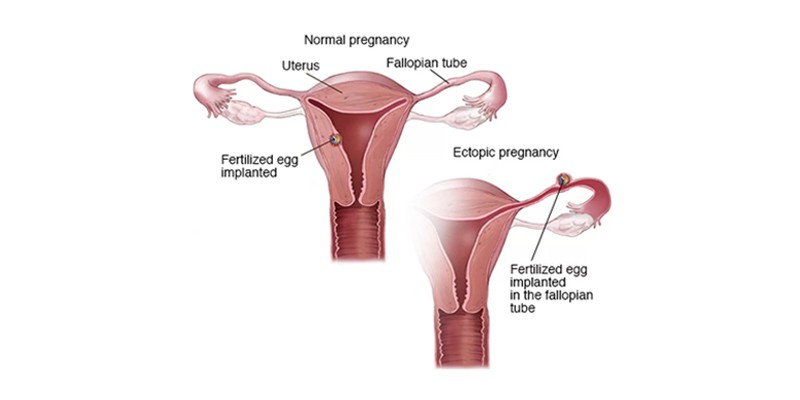Laparoscopic management of ectopic pregnancy

Laparoscopic Management of Ectopic Pregnancy: A Comprehensive Guide
Ectopic pregnancy, a condition where a fertilized egg implants outside the uterine cavity, is a serious medical emergency that requires immediate attention. Most commonly occurring in the fallopian tubes, ectopic pregnancies can lead to life-threatening complications such as rupture and severe internal bleeding. Laparoscopic surgery has emerged as the preferred method for managing this condition, offering a minimally invasive solution with faster recovery and fewer risks.
Understanding Ectopic Pregnancy
An ectopic pregnancy occurs when the fertilized egg fails to reach the uterus and instead implants in locations such as the fallopian tubes, ovaries, cervix, or abdominal cavity. This condition is non-viable, meaning the pregnancy cannot progress to term and poses significant health risks to the individual.
Risk Factors for Ectopic Pregnancy
Several factors increase the likelihood of an ectopic pregnancy, including:
- Previous Ectopic Pregnancy: Having a history of ectopic pregnancies.
- Pelvic Inflammatory Disease (PID): Infections that cause scarring in the fallopian tubes.
- Tubal Surgery: Procedures that affect the fallopian tubes, such as sterilization or reversal of sterilization.
- Use of Assisted Reproductive Technologies (ART): Fertility treatments like in-vitro fertilization (IVF).
- Smoking: Tobacco use, which can impair fallopian tube function.
- Endometriosis: A condition that causes scarring and abnormal tissue growth around the reproductive organs.
Why Choose Laparoscopic Surgery for Ectopic Pregnancy?
Laparoscopy is the gold standard for treating ectopic pregnancies due to its precision, safety, and minimally invasive nature. The key benefits include:
- Minimized Scarring: Small incisions reduce visible scars compared to open surgery.
- Faster Recovery: Patients typically return to normal activities within one to two weeks.
- Shorter Hospital Stay: Most patients can go home the same day.
- Preservation of Fertility: Laparoscopic techniques aim to preserve the fallopian tubes and reproductive organs whenever possible.
- Reduced Pain: Smaller incisions result in less postoperative discomfort.
The Laparoscopic Procedure: Step by Step
Laparoscopic surgery for ectopic pregnancy involves several critical steps, designed to ensure the safety and well-being of the patient:
Diagnosis
Before the procedure, ectopic pregnancy is confirmed through a combination of:
- Ultrasound Imaging: Identifies the location of the pregnancy.
- Blood Tests: Measure levels of human chorionic gonadotropin (hCG), which are often abnormally low in ectopic pregnancies.
- Clinical Symptoms: Severe abdominal pain, vaginal bleeding, and dizziness may indicate rupture.
Preoperative Preparation
- Medical Evaluation: Includes blood tests, imaging, and a review of the patient’s medical history.
- Informed Consent: The surgeon explains the procedure, risks, and alternatives.
- Fasting: Patients are typically instructed to avoid food and drink for 8-12 hours before surgery.
During the Procedure
- Anesthesia: General anesthesia is administered to ensure the patient is unconscious and pain-free.
- Small Incisions: Three to four small incisions are made in the abdominal area.
- Laparoscope Insertion: A laparoscope—a thin tube equipped with a camera and light—is inserted to provide a detailed view of the reproductive organs.
- Management of Ectopic Tissue: Depending on the extent of the condition, the surgeon may:
- Perform a Salpingostomy: Remove the ectopic pregnancy while preserving the fallopian tube.
- Conduct a Salpingectomy: Remove the affected fallopian tube if it is severely damaged or ruptured.
- Closure: The incisions are closed with sutures or surgical glue.
Postoperative Care
- Observation: Patients are monitored in a recovery room for a few hours after surgery.
- Pain Management: Medications are prescribed to alleviate postoperative discomfort.
- Diet and Hydration: Gradual reintroduction of food and fluids.
- Activity: Patients are encouraged to walk to prevent blood clots, but strenuous activities should be avoided for a few weeks.
Recovery Timeline
Recovery from laparoscopic surgery for ectopic pregnancy is generally swift and uneventful:
- First Few Days: Rest is essential. Light activities can be resumed as tolerated.
- 1-2 Weeks: Most patients return to work and normal daily routines within this period.
- Follow-Up Appointments: Regular check-ups ensure proper healing and monitor hCG levels until they return to zero.
Emotional Impact and Support
Experiencing an ectopic pregnancy can be emotionally challenging. It is important to seek support from:
- Counselors or Therapists: To process feelings of loss and grief.
- Support Groups: Sharing experiences with others who have faced similar challenges can provide comfort.
- Family and Friends: Lean on loved ones for emotional and practical support.
Risks and Complications
While laparoscopic surgery is generally safe, potential risks include:
- Bleeding: Excessive blood loss during or after the procedure.
- Infection: Rare and often treatable with antibiotics.
- Organ Injury: Accidental damage to nearby organs such as the bladder or intestines.
- Future Fertility Issues: Depends on the extent of the damage and the condition of the remaining reproductive organs.
- Adhesions: Scar tissue formation that can lead to chronic pain or bowel obstruction.
Alternatives to Surgery
In certain cases, non-surgical management may be an option:
- Methotrexate Therapy: A medication that halts the growth of ectopic tissue, used for early, unruptured cases.
- Expectant Management: Close monitoring without intervention, reserved for cases where the pregnancy resolves on its own.
Conclusion
Laparoscopic management of ectopic pregnancy is a life-saving procedure that offers excellent outcomes with minimal invasiveness. By preserving fertility whenever possible and ensuring a quicker recovery, laparoscopy has become the preferred choice for addressing this condition. If you suspect or have been diagnosed with an ectopic pregnancy, consult a qualified gynecologist immediately to discuss the best course of action. Remember, prompt treatment is essential to safeguard your health and future fertility.

